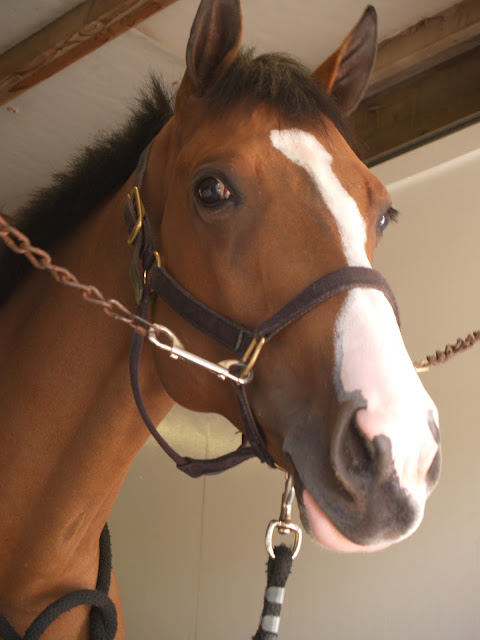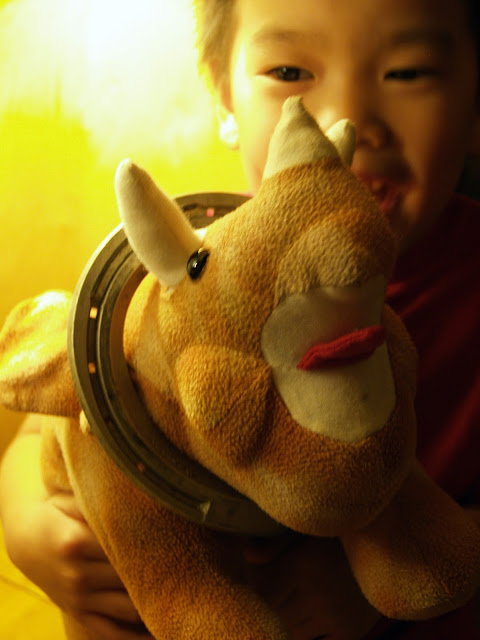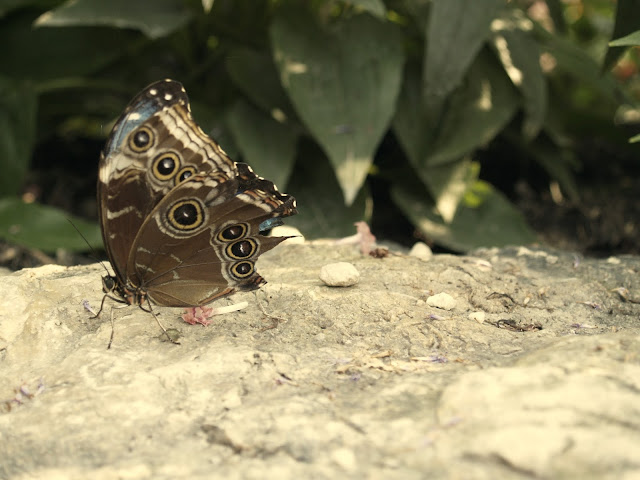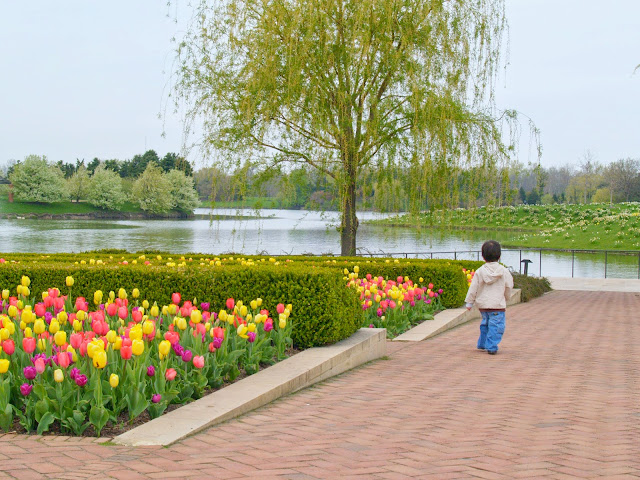I cried in my Hebrew class.
It was my first semester at Trinity, almost nine years ago. Dr. Magary was explaining grammar and syntax in the book of Ruth. He loved every jot and every tittle of God's Word. Every letter, every stroke was precious and full of meaning in his eyes. Not one word was empty.
During that same semester, I was taking another a class on the Psalms. Dr. VanGemeren took us up into the air, and showed us the world of the Psalms. See! The wilderness, the green pastures, the hills. Behold! The trees of the forest, the battlefields, the valley of the shadow of death. Look! That was the willow tree where they hung up their lyres. Here, this is where we hid under the shadow of the Almighty.
These two men offered me cups of cold water, and only then I realized that I had been thirsty my whole life. Some days, my heart would burn and ache just listening to their teachings. I cried in my Hebrew class because in and through his reading of the Word, I heard the voice of my God.
Here are some lessons I learned from them about how to read the Psalms:
1. The Psalms is a story.
It has a beginning and an end. The
first two chapters
set the stage for the rest of the book. Dr. VanGemeren would say
that all the themes in all the other 148 chapters are introduced here,
in the beginning. The story has an ending. The last five chapters are
called the Hallelujah psalms. They are the grand finale to the story.
The book of Psalms contains five books, the same number as the books of the law — the Pentateuch. Each book has its own characteristics, its dominant writers, its dominant themes.
Book I: 1-41
Book II: 42-72
Book III: 73-89
Book IV: 90-106
Book V: 107-150
For
example, Book IV begins with the prayer of Moses. The person of Moses
evokes the stories of creation, the great Exodus, and forty years of wandering in the
wilderness. These are the very themes that dominate Book IV. Each
book end with a similar doxology: "Blessed be the Lord, the God of
Israel, from everlasting to everlasting! Amen and Amen" (Psalm 41:13,
the doxology of Book I).
Because the Psalter is a
story, the place of every song, every line, every word is meaningful.
The 150 psalms are not randomly arranged. Whenever we read and interpret
a psalm, it is crucial that we read what precedes it and what comes
after it. One psalm is one scene in a bigger story. In order to
understand this particular scene, it is helpful to know its context, its
location, the questions and concerns of the person uttering this
prayer.
So, for example, Psalm 111 and 112 should be read
together. They begin with the same words: "Praise the Lord!" Psalm 111
tells us about Yahweh, and Psalm 112 tells us about the blessed person.
Right in between these two psalms, we see that the blessed person
is bound to Yahweh by "the fear of the Lord" which is the beginning of
wisdom (111:10). The fear of the Lord is the meat that brings this
sandwich together.
Because the Psalter is a story,
the 150 psalms moves forward, and its movement follows certain patterns.
From a bird's-eye view, the psalms move from lament to praise, chaos to
order, conflict to resolution, shame to glory — orientation, disorientation, reorientation.
Sometimes, the movements are small, from one verse to the next, or from
one chapter to the next. Other times, the movements can span across a few
chapters. The themes flow from one to another much like how the scenery
changes on the highway. A mountain might first be
at the horizon; it then becomes nearer; and soon, it is behind us.
Therefore,
Psalm 23 is comforting because of Psalm 22. "The Lord is my shepherd"
is the answer to David's question "My God, my God, why have you forsaken
me?" These two psalms are embedded in a greater body of psalms about
kingship, and the shepherd is a symbol of the king in the Old Testament.
In Psalm 20, David prayed "O Lord, save the king!" In Psalm 24, David
declares, "Who is this King of glory? The Lord of hosts, he is the King
of glory!" The theme changed from an earthly king to the heavenly King.
 |
| Photo credit: my sister Catherine |
2. The Psalms is a place.
Christians live in a place between two worlds. We left our old lives behind, and we set our feet on a pilgrimage towards the Celestial City. The Psalms is that place, that path, between these two worlds.
David, Moses, Asaph, the Sons of Korah were the people who once walked on this narrow path. They knew the terrains of this wilderness. They showed us that there are two ways: We could either walk towards to City of Life on the Path of Wisdom, or we could turn back to the City of Death on the Path of Folly. Every day, in every decisions, we are talking steps in either direction. We could either fix our eyes on Life or on Death.
The psalmists did not leave us with mere breadcrumbs. No, they carved out
mountains with their bare hands. They dug deep wells of never-ending springs. They established ancient
rocks that conquered the test of time. They paved the road with their prayers, their tears, their joy, their blood, their strength, their songs. They showed us the path that leads to Zion.
But, they failed. And they died. The path was
unfinished.
Jesus Christ, the Son of God, came and walked along the path of the Psalms. He went into the wilderness. He spoke and the mountains moved. His steps were sure and steadfast; he never looked back. He paved the way to the Father with his tears, his sweat, his blood, all the way to Golgotha where he gave his life and said, "
It is finished."
Our Lord Jesus Christ is the way, the truth, and the life. He is the Story; he is the Place. In him, we hide.














































